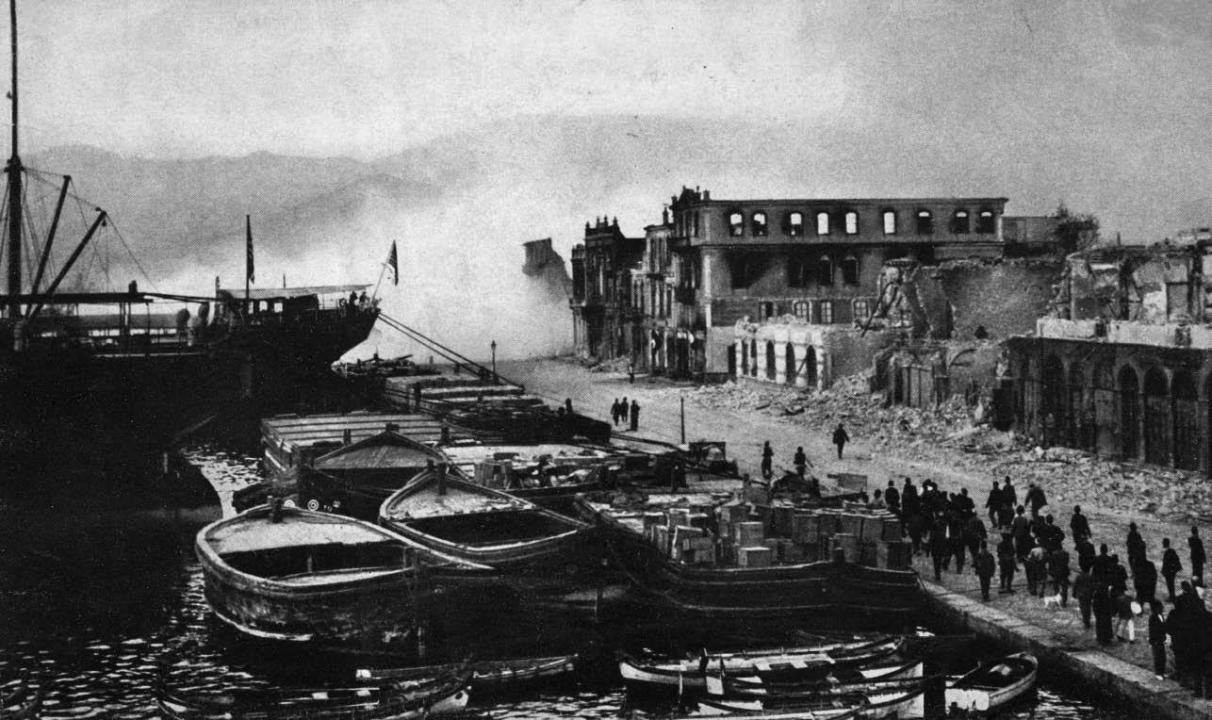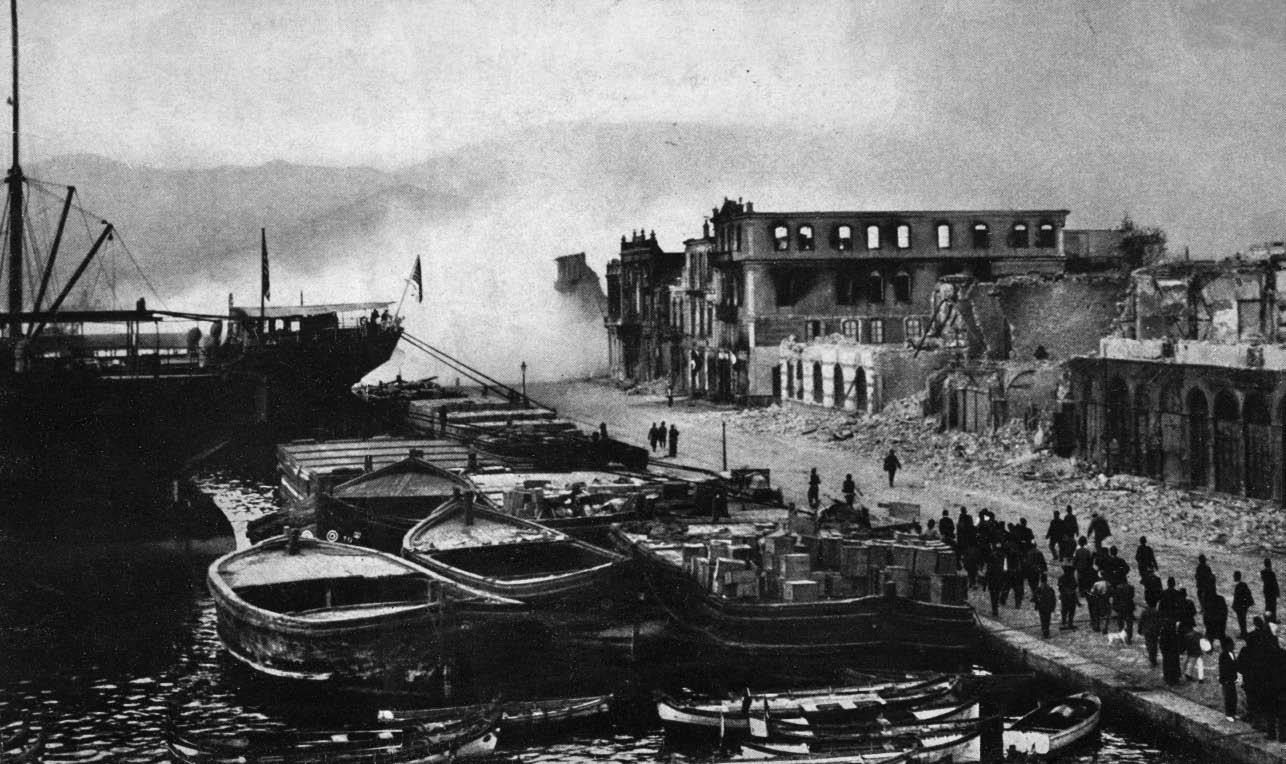The shores of the eastern Mediterranean, from the eastern Aegean to the delta of the Nile, constitute a region known as the Levant, from the French for the sunrise. The French were first into Smyrna, opposite the island of Chios, which became a boom town in Ottoman times, trading figs and raisins from the hinterland. Far from Constantinople, it was a cheap and relaxed place to do business, encouraged by the Ottoman grants of consular jurisdiction and free trade. European consuls lived like princes in Smyrna, the merchants like lords. Tension between Muslims and Christians, between the many communities of Jews, Greeks, Armenians and Franks who settled there, were generally kept in check, both by the local authorities and by the consuls’ own naval might.
The Levantine world later expanded to Beirut and Alexandria, the two other cities whose histories are explored in a new book which marks Philip Mansel’s impressive return to the eastern Mediterranean.
The Levant was characterised by conciliation and negotiation, placing the conveniences of trade over the principles of politics. Relying first on an Italianate lingua franca, the Levant became increasingly French-accented.
Settled by Greeks from the conservative islands of the Aegean, as by Damascene Christians, the Levant could be an escape from the restrictions of race or religion. Its cities became windows on to the West, where churches and synagogues rose beside mosques. There were cafés and music, hats, newspapers and books, race courses, mixed councils (still running Beirut) and a plethora of schools.
Almost everyone was an immigrant, and like all immigrants they took education very seriously. Mansel says that Victoria College, the Eton of the Middle East, is the only British institution Alexandrines remember with affection; it gave expatriate Britons an education, but also generations of Arabs, Jews and Greeks.
It had its poets, artists, wits and bankers; it had its own ways of doing things. Between the wars Alexandria was freer than many cities in Europe; Cavafy’s homoerotic poems were published in Alexandria whereas his friend E.M. Forster gave up writing novels in prudish London.
It is not clear whether, for all their flexibility, Levantines discovered what Mansel calls the ‘elixir of co-existence’. Harmony held for certain places at certain times; just as often, Mansel describes a city sitting on a volcano of communalism, or foreign intervention. Time and again, Levantines crowded on to ships in the harbour, waiting for a signal to flee, or to return.
Smyrna collapsed bloodily in 1922, in a puff of Greek ambitions in Anatolia (Greece was said to have the appetite of Russia with the resources of Switzerland). Mansel highlights the vainglory and the perfidy of its final days, as its Greeks were herded down into the port, imploring the foreign ships to save them. Cosmopolitan and wealthy Smyrna became dreary Izmir, and a window slammed.
‘States like to subdue cities, as jailers like to recapture prisoners,’ Mansel writes. The Levantine catastrophe was a victory of hinterland over coast, nation over city state, the majority over the minority. It isn’t hard to see why: in each of these cities, when there were other loyalties to hold, people held them. Dr Apostolos Psaltoff of Smyrna turned out for Greece’s wars in 1897 and 1912 against the Ottomans, whose taxes he paid; so, too, did the Benakis, who had come to Alexandria in 1863, made their fortune, and, rather looking down on provincials from Greece proper, lived grandly enough to show ‘that wealth, privilege and ambition are enough to create an aristocracy’. The Barkers of Alexandria, despite two centuries in the Levant, still sent their children to school and army in Britain. Eventually, the state of Israel arrived, too, to undermine the Jews.
Nasser destroyed Alexandria by nationalising foreign businesses, and most of their owners left, taking Egypt’s economy with them. Only Beirut remains Levantine, perhaps because its own hinterland is as patched and fractured as the city itself. In the Sixties President Chamoun told a visitor to ‘the Switzerland of the Middle East’ that in Lebanon ‘nothing is forbidden except an empty pocket, in which case nothing is forgiven’. The Jewish community actually grew. Eleanor Brewer met Philby there, and told her husband, ‘Kim and I want to get married.’ Mansel quotes his supposed reply: ‘I hope I’m not in your way.’
Then came the cataclysm, and everyone seemed to be in everyone else’s way. Double doses of war and civil war left Beirut, like Smyrna, a smouldering wreck. But the people remain, and the once- gorgeous city has been rebuilt, no more lovely than its regional rivals. Mansel quotes an Alexandrian, Jo Boulad: ‘In a Mediterranean city you never lose hope. The sea always brings something.’
Instead of composing an elegy on a once powerful civilisation, Mansel has given the Levantine world its chronicle, and restored its weight in history. Levantines made good, lost fortunes, partied and studied in foreign schools. They produced art and money. But in the end they were always prey to blackmail, influence, scapegoating and the charge of lining their own pockets at the expense of the labouring people around them — ‘the natives’. The cotton kings of Alexandria were connected to the Egyptian cotton workers by the slenderest of threads.







Comments